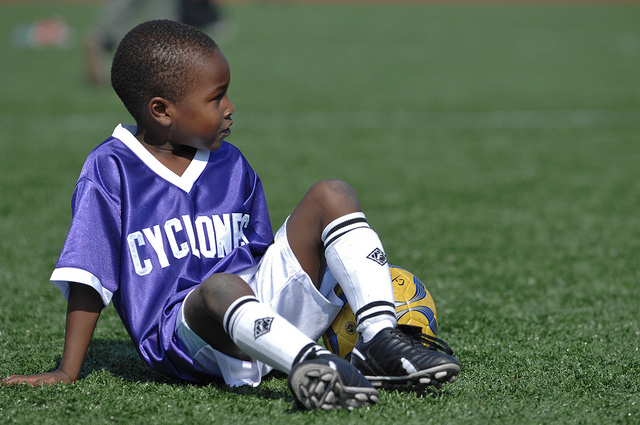Injuries are hard to avoid among child athletes. Even with precautions in place, the possibility of injury often cannot be completely eliminated. The number of sports-related injuries (including concussions) in those aged 19 or younger was 250,000 in 2009. Children who have had a concussion have an increased chance of having another one. Even more dangerous are situations in which children return to playing sports without allowing their concussion to properly heal. In these cases, another head injury can cause permanent damage or worsened symptoms. Not much is known about the effects of head injuries that occur early in life on cognitive function later in life, but a new study reveals what those effects might be.
Image Source: Michael Krinke
The study analyzed the relationship between childhood concussions and brain function later in life. The data showed that children who sustained mildly traumatic brain injuries were more likely to display deficiencies in brain function and cognitive ability just two years later. The participants included 30 children between the ages of eight and ten who participated in athletic activities. Half of the participants had sustained a sports-related concussion two years prior while the other half had not experienced any head injuries.
The research team evaluated the children based on their working memory, ability to pay attention, and impulse control. During the testing, the researchers also recorded EEG activity in the children’s brains. The results of the tests showed that as a group, children who had sustained a concussion earlier in life performed worse on tests measuring their working memory, attention, and impulse control compared to the group of children who had no prior injuries. The amount of time since the injury and whether or not the child experienced unconsciousness were found to have no significant effect on brain function. However, the age at which the child sustained the injury did affect their performance on tests, with children who were injured at a younger age exhibiting greater deficits in cognitive ability.
From this study, it is clear that there are consequences to childhood head injuries that are not always visible. The researchers suggest that steps should be taken to understand how brain health can be improved following an injury so that these cognitive deficits can be reduced in the future.
Feature Image Source: Soccer-Army Youth Sports and Fitness-CYSS-Camp Humphreys, South Korea-111001 by USAG-Humphreys










